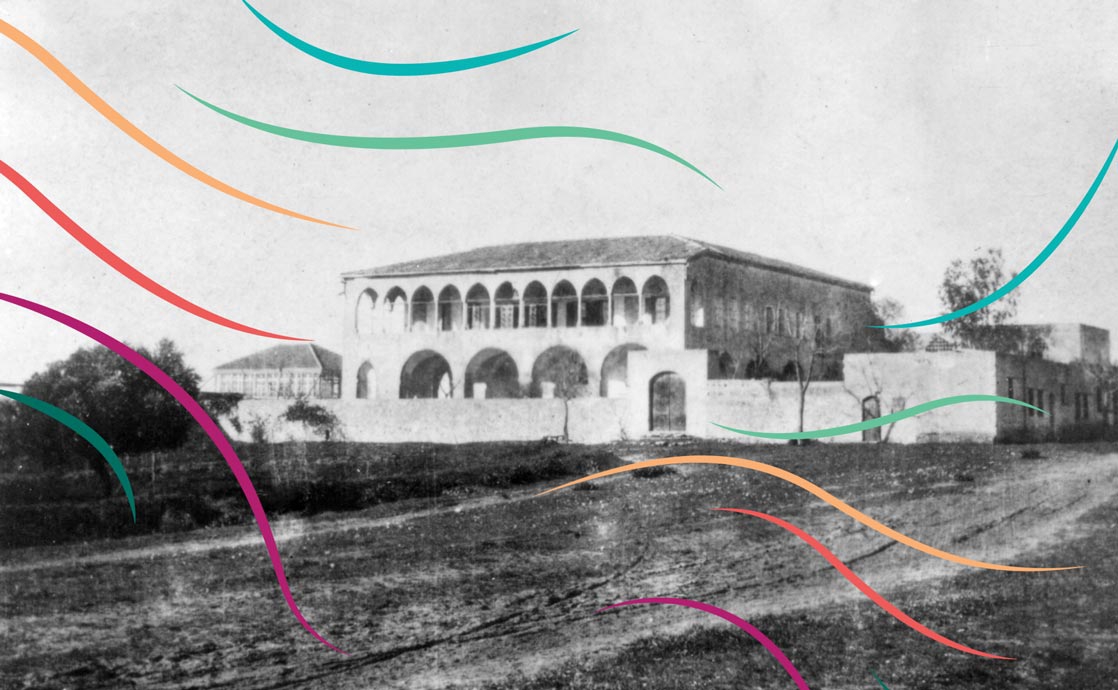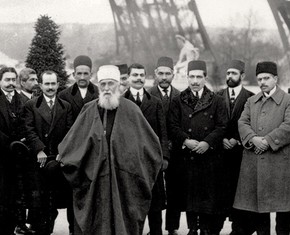The views expressed in our content reflect individual perspectives and do not represent the authoritative views of the Baha'i Faith.
In 1891, near the end of his forty-year ministry, Baha’u’llah revealed his “last outstanding Tablet” — the “Epistle to the Son of the Wolf” — which may be regarded as Baha’u’llah’s crowning revelation.
Register for the Wilmette Institute course on Baha’u’llah’s “Epistle to the Son of the Wolf” beginning Oct 22, 2020.
Just like a crown, this book has various jewels embedded within it — not only proofs of the validity of his Cause but also a number of previously revealed tablets that Baha’u’llah reprised and “re-revealed” in this major work.
In that sense, the “Epistle to the Son of the Wolf” represents a final summation, by Baha’u’llah, of his world-revolutionizing Faith.
The “Epistle to the Son of the Wolf” represents Baha’u’llah’s own selection of some of the choicest gems from among his previously revealed works, in these major dimensions: a public proclamation of Baha’u’llah’s advent; the declaration of his mission and purpose; an autobiographical narration of key personal experiences; his presentation of major Baha’i ethical and moral precepts; explanations of prophecies and their symbolic and spiritual significances; glowing tributes to Baha’i martyrs; and highlights of other key aspects of Baha’i history and teachings.
Shoghi Effendi, in “God Passes By,” described this remarkable work as follows:
Finally, mention must be made of His Epistle to Shaykh Muhammad-Taqi, surnamed “Ibn-i-Dhi’b” (Son of the Wolf), the last outstanding Tablet revealed by the pen of Baha’u’llah, in which He calls upon that rapacious priest to repent of his acts, quotes some of the most characteristic and celebrated passages of His own writings, and adduces proofs establishing the validity of His Cause.
With this book, revealed about one year prior to His ascension, the prodigious achievement as author of a hundred volumes, repositories of the priceless pearls of His Revelation, may be said to have practically terminated—volumes replete with unnumbered exhortations, revolutionizing principles, world-shaping laws and ordinances, dire warnings and portentous prophecies, with soul-uplifting prayers and meditations, illuminating commentaries and interpretations, impassioned discourses and homilies, all interspersed with either addresses or references to kings, to emperors and to ministers, of both the East and the West, to ecclesiastics of divers denominations, and to leaders in the intellectual, political, literary, mystical, commercial and humanitarian spheres of human activity.
In this essay, let’s examine how Baha’u’llah engaged in the public discourses of society in his day and age through what he wrote in the “Epistle to the Son of the Wolf,” and how his spiritual example can serve as a model for engaging the public discourses of society today.

In fascinating ways, the “Epistle to the Son of the Wolf” offers us a rich resource for such topics of vital public interest and contemporary concern as war and peace, international relations, and enhanced communications. These topics lend themselves to meaningful conversations with friends, colleagues, and coworkers, as a profound way of participating in the important discourses of society. That, in fact, gives readers one way of looking at Baha’u’llah’s revelation in general, and at the ”Epistle to the Son of the Wolf” in particular.
The ”Epistle to the Son of the Wolf” has a major ethical dimension as well. Ethical teachings traditionally have been focused on individual behavior. The following passage serves as a moral compass for anyone and everyone. Here, Baha’u’llah personified his “Most Sublime Pen”, which metaphorically calls out to Baha’u’llah in a “shrill voice,” urging him to give to the Shaykh — the “Son of the Wolf” — the very same advice that Baha’u’llah had once given to one of his sons:
At this moment the shrill voice of the Most Sublime Pen hath been raised, and hath addressed Me saying: “Admonish the Shaykh even as Thou hast admonished one of Thy Branches (sons), that haply the breezes of Thine utterance may attract and draw him nigh unto God, the Lord of the worlds.”
“Be generous in prosperity, and thankful in adversity. Be worthy of the trust of thy neighbor, and look upon him with a bright and friendly face. Be a treasure to the poor, an admonisher to the rich, an answerer to the cry of the needy, a preserver of the sanctity of thy pledge. Be fair in thy judgment, and guarded in thy speech. Be unjust to no man, and show all meekness to all men. Be as a lamp unto them that walk in darkness, a joy to the sorrowful, a sea for the thirsty, a haven for the distressed, an upholder and defender of the victim of oppression. Let integrity and uprightness distinguish all thine acts. Be a home for the stranger, a balm to the suffering, a tower of strength for the fugitive. Be eyes to the blind, and a guiding light unto the feet of the erring. Be an ornament to the countenance of truth, a crown to the brow of fidelity, a pillar of the temple of righteousness, a breath of life to the body of mankind, an ensign of the hosts of justice, a luminary above the horizon of virtue, a dew to the soil of the human heart, an ark on the ocean of knowledge, a sun in the heaven of bounty, a gem on the diadem of wisdom, a shining light in the firmament of thy generation, a fruit upon the tree of humility. We pray God to protect thee from the heat of jealousy and the cold of hatred. He verily is nigh, ready to answer.” Thus hath My tongue spoken unto one of My Branches (sons), and We have mentioned it unto such of Our loved ones as have cast away their idle fancies, and clung unto that which hath been prescribed unto them in the day whereon the Daystar of Certitude hath shone forth above the horizon of the will of God, the Lord of the worlds.
But ethical principles also have a social dimension as well — hence the term “social ethics.” Baha’u’llah’s teachings include social ethics, and also socio-moral principles that serve as guides for good governance, group consultation, ideal relations between nations, religions, and races, and a host of other social principles. Here is one example:
We pray God—exalted be His glory—and cherish the hope that He may graciously assist the manifestations of affluence and power and the daysprings of sovereignty and glory, the kings of the earth—may God aid them through His strengthening grace—to establish the Lesser Peace. This, indeed, is the greatest means for insuring the tranquillity of the nations. It is incumbent upon the Sovereigns of the world—may God assist them—unitedly to hold fast unto this Peace, which is the chief instrument for the protection of all mankind. It is Our hope that they will arise to achieve what will be conducive to the well-being of man. It is their duty to convene an all-inclusive assembly, which either they themselves or their ministers will attend, and to enforce whatever measures are required to establish unity and concord amongst men. They must put away the weapons of war, and turn to the instruments of universal reconstruction.
On October 22, 2020, the Wilmette Institute course on Baha’u’llah’s “Epistle to the Son of the Wolf” — his “last outstanding Tablet” — will begin. This online course is open to the public, and anyone interested is free to enroll for a small tuition fee (scholarships available).
In reading this outstanding, compelling work of Baha’u’llah, each Wilmette Institute course participant will be encouraged to identify those topics that would assist individuals in participating in the discourses of society.

















Comments
Sign in or create an account
Continue with Googleor